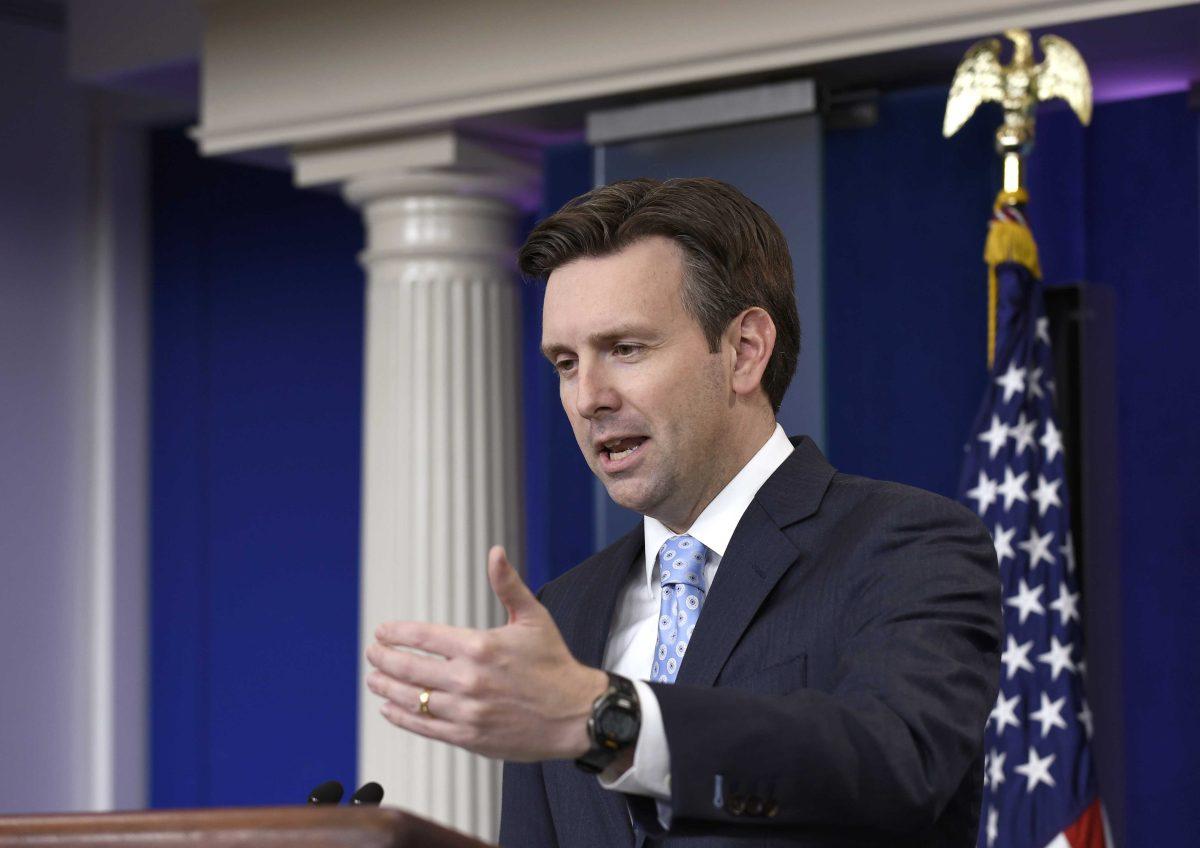The acrimonious relationship between the executive and legislative branches inflamed yet again last week concerning the 2016 defense authorization bill, indicating the bitter and relentless gridlock between Congressional Republicans and the president is far from over.
Last Thursday, President Obama vetoed the $612 billion defense bill, the latest performance in the political circus we know as the U.S. government.
In defense of the veto, Obama said the defense budget undermines the strict spending caps imposed on other government agencies, relying on an unregulated fund to pay for items necessary for defense.
White House Press Secretary Josh Earnest spoke in support of the veto, arguing the passing of the bill would be “utterly irresponsible.”
“The concerns that we’ve expressed about it is it advocates, essentially, the use of a slush fund for funding critically important national security priorities,” Earnest said.
The war fund Obama referred to is an unlimited supply of money reserved for fighting wars abroad. The proposed budget allocated approximately $25 billion more to defense spending than in 2015, according to the U.S. Department of Defense.
The bill still employs the unreasonable provisions hindering the White House’s plan to shut down the military prison in Guantanamo Bay. According to the bill, any release from the prison will require the Secretary of Defense to testify to Congress that the transfer is of national interest, and the country to which the prisoner is transferred will ensure the prisoner will not join terrorist groups.
The extension of these provisions hurts Obama’s 2008 campaign promise to transfer detainees out of the military prison in Cuba.
Another point of contention regarded increases to defense spending without first increasing domestic spending. Republicans criticize the use of the president’s most powerful executive tool because it furthers his domestic agenda. This is Obama’s third veto this year and the fifth of his presidency.
House Republicans need about 17 votes by Nov. 5 in order to override the veto. The Senate has enough votes to override the veto, but it is rumored many Democrats will switch their vote in order to avoid conflict with the president.
This is yet another example of our legislative body playing political games with national security. As if seven years of budget gridlock isn’t enough, if the veto override prevails, a new budget would be delayed for at least a year.
Obama did praise the bill for ensuring the military stayed funded, as well as for its improvements in military retirement plans. Despite positive attributes, Obama said the bill simply wasn’t good enough.
Republicans will have little more than a week to rally support for an override. If Democrats and Republicans can compromise on the budget, the president will likely sign it. A compromise is unlikely with this batch of legislators, however, and budget talks could cause the government to shut down in December.
We don’t have a crystal ball to see what the future will hold for the military or the government. One thing is for sure: An uncertain future is now the only certainty in American politics.
Mariah Manuel is a 22-year-old mass communication senior from Lake Charles, Louisiana. You can reach her on Twitter @mariah_manuel.
Opinion: Defense budget veto is yet another example of government dysfunction
October 26, 2015
White House press secretary Josh Earnest speaks during the daily briefing at the White House in Washington, Monday, Oct. 26, 2015. Earnest answered questions about the budget and defense spending, the earthquake in Afghanistan, and other topics. (AP Photo/Susan Walsh)
More to Discover








